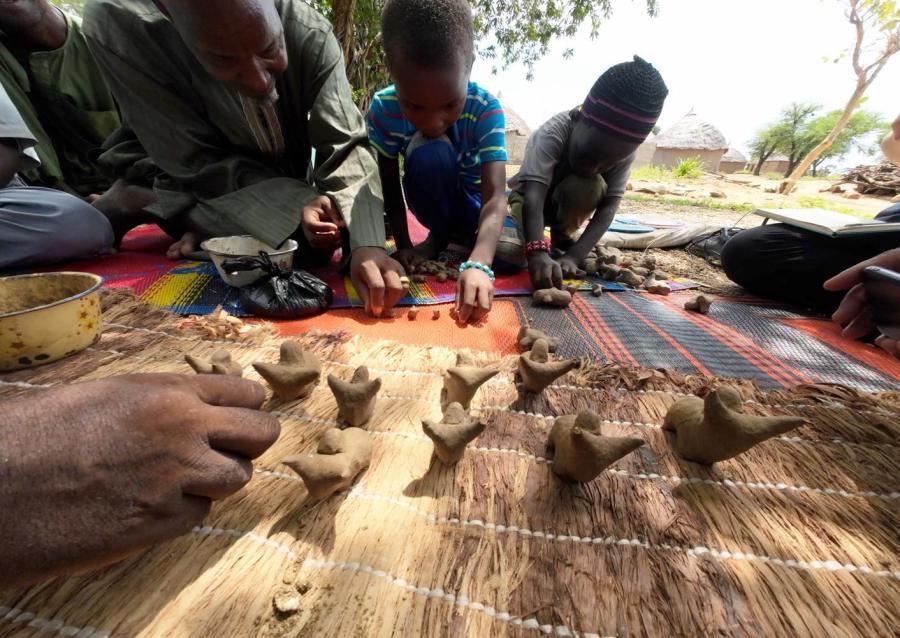
Febna Caven
On May 10, 2013, Musa Usman Ndamba was put on trial before the Court of First Instance in Bamenda, Cameroon. He was put on trial for the crimes of defamation committed by one Musa Adamu against a powerful billionaire rancher and landowner in the N.W Region of Cameroon (Alhadji Baba Ahmadou Danpullo). Now, Musa Usman Ndamba is not or has never ever been Musa Adamu. Instead, who he is, he is a leader of the indigenous Mbororo community of pastoralists in contention with Danpullo over their right to their traditional livelihood. Musa Usman Ndamba is the Vice President of MBOSCUDA (Mbororo Social and Cultural Development Association) and an elected member of Cameroon Chamber of Commerce Industries Mine and Craft (CCIMA) and a potent voice for the community of disfranchised Mbororos. In the region where the law is the feudal lord’s whim, that is reason enough to require Musa Usman Ndamba to atone for the fictional Adamu’s sins through silence and incarceration.
The Mbororos are a community of pastoral indigenous people in West Africa. Being cattle herders, traditionally they called as home wherever their cattle where. As nation states evolved and inked and barricaded their boundaries, the Mbororos increasingly found themselves being deemed as unwanted aliens in the lands that they freely roamed but never settled onto. Even today, Mbororo communities of Chad, Nigeria and Central African Republic suffer greatly from armed gangs for whom their cattle constitute an easy and attractive target. Choice as well as compulsion led more than a million of them settle in Cameroon in the last century. Despite over a century of their residence in N.W Cameroon the Mbororos are still seen and discriminated as outcastes in the region. With poor access to education, health, employments and low level of engagement with formal governance and political structures, the Mbororos are a community very much in struggle for their rightful place in Cameroon. Moreover, the Mbororos being pastoralists, farmer- grazier conflicts that date back to colonial times still persist, especially in the Sabga North West Region. Communal lands used by Mbororos are targeted by commercial ranchers and land speculators. Given the power differential between the parties, blatant usurpation of the communities’ lands and resources are what such conflicts culminate in.
With Alhadji Danpullo being the most powerful of commercial ranchers and biggest landowner in the region, he is systematically engineering an appropriation of the Mbororos’ livelihood and rights in the region. In August 2011, Danpullo declared and enforced an ultra-vires ban on horse-trading in the region. With the help of an armed militia, he took away the horses of the herdsmen in the region and arrested the men who went to get them back. Despite the local court, Ministry of Livestock and the Governor intervening, Danpullo still has in custody more than 60 horses and continue to harass anyone who tries to sell or trade their horses. The activist, Duni Jeidoh, who worked tirelessly to mobilize support to resist the ban on the horse trade, was attacked by gunmen in front of his house in Ndop in July 2012. Though the elite anti-crime unit of Cameroon, BIR, caught the five suspects and one of them even confessed of the involvement of Danpullo as the sponsor of the attack, they were released as soon as they were handed over to the Gendarme authorities of the Northwest legion. Another testimony to the power Danpullo wields in the region. Moreover as of August 2012, the communal lands belonging to the people of Sabga, Kedjom Keku and Esu are still occupied by Danpullo’s ELBA Ranch against all administrative and judicial decisions, which confirm and demand that they be restored to the communities. As the conflict between Danpullo and the Mbororos have intensified, the rancher has strengthened his efforts to break down the leadership of the Mbororo community, using his private TV channel to spread hatred against Mbororos in the Northwestern communities and using false charges of defamation to arrest and silence the activists. Musa Usman Ndamba and the present false charges against him is just another act in Danpullo’s strategy to silence the Mbororos’ legitimate voice.
Seeking it to move away from its colonial and feudalistic past, Cameroon as a country has attempted significant strides in establishing itself as a participative democracy. With the introduction of multi-political party system, introduction of anti-corruption offices within the government ministries themselves, purposive ratification of all the key international treaties for protection of human rights and indigenous people, Cameroon is a nation that has avidly sought to reinvent itself. The ease with which one man, Alhadji Baba Ahmadou Danpullo, takes law of the land into his hands and terrorizes the minority indigenous community puts into question the authenticity of all these efforts. The discrimination and harassment perpetrated on the Mbororos are a clear violation of the constitutional laws of Cameroon as well as the International Covenants against ethnic discriminations it is signatory of. Ending the century long discrimination that the Mbororos face is crucial to ensure not just the rightful subsistence of the Mbororo community in the country, but also for the endurance of Cameroon’s desire to be a modern state rooted in civil law, inclusiveness and democracy.
—Febna Caven is an independent researcher and writer on communities in contested environments.


